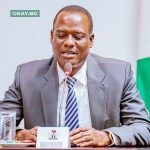Senator Ahmad Lawan, who represents Yobe North in the National Assembly, has denied reports linking him to the arrest of his constituent, Ishe’u Ibrahim Jadda, over criticism of a federal water supply project in Gashua.
Jadda was reportedly arrested by security operatives after he publicly questioned the effectiveness of the water scheme.
However, Lawan, through his media adviser Ezrel Tabiowo, said he had no involvement in the incident and described the accusation as a “deliberate attempt to tarnish” his reputation.
Okay.ng reports that Lawan, a former President of the Senate, stressed that he has never used his office to “suppress dissent or intimidate critics.”
“This reckless and false publication is nothing but a deliberate attempt to tarnish the reputation of a statesman whose entire public service has been defined by strict adherence to the rule of law, democratic principles, and the rights of citizens to free expression,” the statement reads.
Lawan maintained that his political career, including his time as Senate President between 2019 and 2023, has been built on “transparency, accountability, and open dialogue.” He pointed out that even during his time in opposition, he welcomed criticism and opposing views.
“To suggest that a man of such pedigree would orchestrate the arrest of a constituent for exercising his constitutional right to free speech is not only absurd but an affront to his decades of principled service,” the statement added.
According to Lawan’s camp, the Gashua Water Supply Project — which the senator facilitated — was commissioned by the federal government and handed over to the Yobe State Government. The project was said to be in response to a health emergency in the area, where contaminated water sources have been linked to a high rate of kidney disease.
“Gashua, a town in Yobe North Senatorial District, has one of the highest cases of kidney disease, which medical experts have linked to contaminated water sources,” the statement noted.
Lawan concluded by stating that he welcomes constructive criticism and views public feedback as a “vital tool for improving service delivery.”













